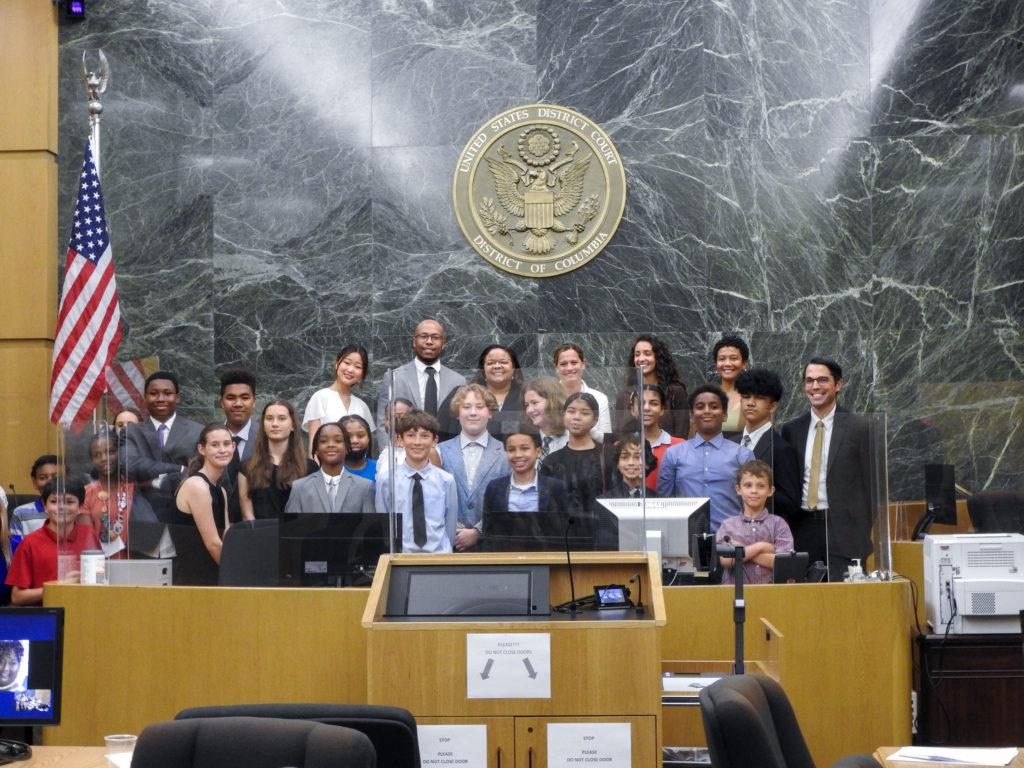A jury found Kevin Smith, a fictional student attending Duke Ellington High School, not guilty of theft Monday.
Twenty Stuart Hobson Middle School students completed their mock trial Monday, which culminated six months of legal coaching from seven GW Law students. D.C. District Court Judge Jia Cobb presided over the trial, which deliberated whether Smith, an imaginary junior, stole another student’s $700 Nikon camera in a make-believe case created by Kate Weisburd, an associate professor of law, and Ty Alper, a law professor at the University of California, Berkeley.
Weisburd said she and GW Law students — many of whom were her former students and research assistants — commuted to Stuart Hobson Middle School in northeast D.C. to teach students how to write opening and closing arguments and how to question witnesses every Friday afternoon. Weisburd said the work taught middle school students analytical, writing, public speaking and teamwork skills.
“This trial marks the culmination of months of hard work by the students,” Weisburd said at the trial.
Weisburd said she previously taught fifth graders mock trial at other schools, but she added additional witnesses and complicated the facts of the fictional case to better challenge middle school students. She said she hopes to continue the program annually at Stuart Hobson, and she may increase the level of challenge in the program to match the students skillset.
“I really wanted the students to enjoy themselves, to enjoy the role of being a lawyer or being a witness, with the hopes that maybe will stick with them,” Weisburd said.
Kaitlyn Iwanowski, a third-year law student in the program, said she joined the coaching program to teach others about the mock trial process after participating in mock trial in high school and college.
“It felt really good to see other people fall in love with it like I did,” Iwanowski said.
Grace Hong, a third-year law student in the program, said she found the students’ growth and improve in confidence rewarding.
“Towards the beginning of the summer, a lot of students were quiet and shy and stumbled on their words,” she said. “But today, I feel like they just grew a lot.”







